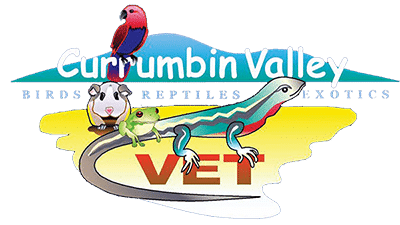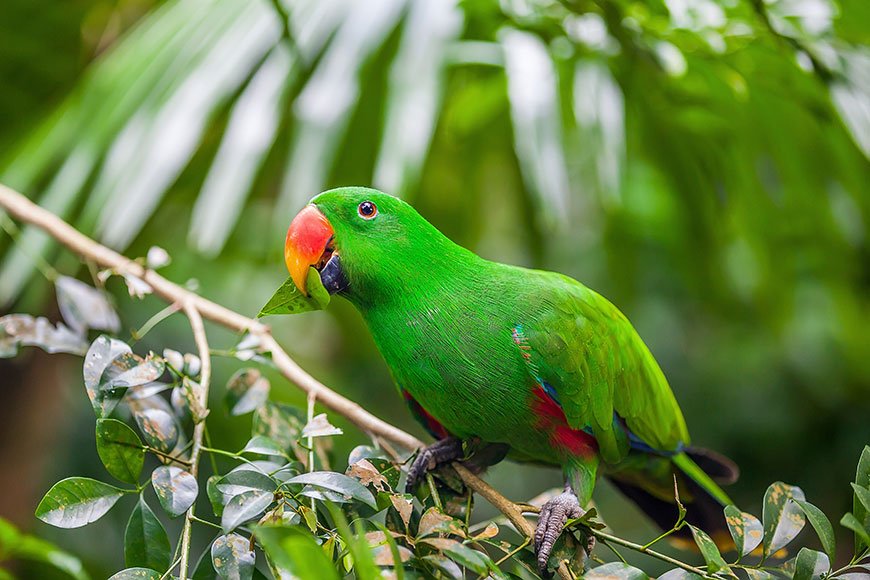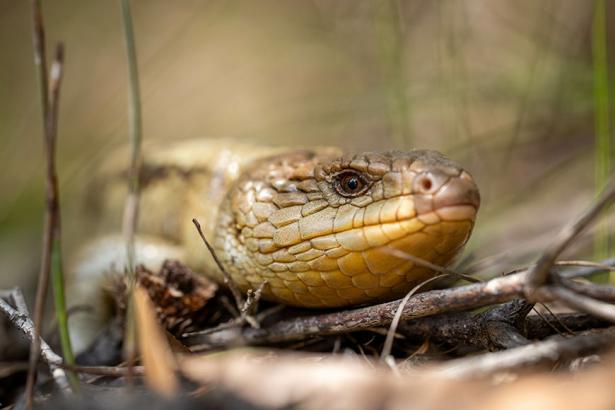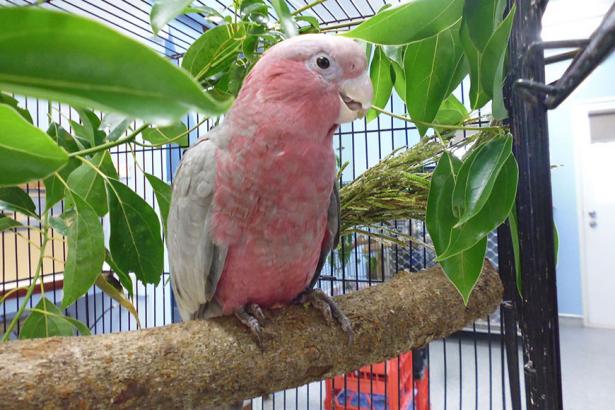The role nutrition plays in the health and wellbeing of all animals, particularly exotic pets, is something that cannot be overlooked. The unique needs of these pets pose challenges for pet owners and veterinarians alike.
In this article we will focus on the dietary requirements of some of the most common exotic pets, including reptiles, birds, and small mammals. Diet can make all the difference, it can add or take years off of the life of your animal companion – let’s dive in.
Reptiles: Cold-Blooded, but Not Cold on Nutritional Needs
Snakes
Snakes such as Children’s pythons are perhaps the most iconic of exotic pets, but their dietary needs require careful attention. Snakes are carnivores, and their diet is highly specialised. Most pet snakes feed primarily on rodents such as mice and rats.
Key considerations for feeding snakes include:
- Whole Prey: Snakes should eat whole prey items, which include bones, organs, and fur or feathers. This provides the complete nutritional profile they need, including calcium and other minerals they need to live their best life.
- Feeding Frequency: The frequency of feeding depends on the snake’s size, age, and species. Juvenile snakes may need to eat once a week, while adult snakes can go weeks or even months between meals.
- Prey Size: The prey item should be no wider than the widest part of the snake’s body to prevent choking or regurgitation.
- Frozen vs. Live: You should only feed pre-killed, frozen prey to avoid injury to the snake and ensure humane feeding practices.
Lizards
Lizards vary greatly in their dietary needs. While most Australian lizards are omnivores, some eat primarily insects whereas others prefer a mostly herbivorous diet.
- Bearded Dragons: These pets require a balanced diet of insects, such as crickets and mealworms, and green leafy vegetables such as kale and spinach. Juveniles require more protein, but adults should have a higher proportion of vegetables.
- Blue Tongued Lizards: Another popular pet, these skinks love eating insects such as crickets and cockroaches, as well as flowers, fruits and berries. Providing a varied diet such as this will ensure optimal health for your animal companion.
Turtles and Tortoises
The dietary needs of turtles and tortoises depend heavily on their species.
- Aquatic Turtles: Turtles should be fed a varied diet consisting of whole fish such as whitebait, specially prepared turtle food such as beef heart, as well as green leafy vegetables and fruits – apples are a favourite. Short-necked turtles are omnivores, while long-necked turtles are primarily carnivores, so short-necked turtles should be fed a larger amount of vegetable matter.
- Land Tortoises: These tortoises are primarily herbivores. They thrive on a diet of grasses, leafy greens, and a variety of vegetables. Avoid high-protein foods as they can lead to health issues.
Birds: Feathered Friends with Diverse Diets
Birds have complex dietary needs, and their nutritional health directly impacts their plumage, energy levels, and longevity.
Parrots
Parrots are omnivores, but their diet should primarily consist of plant-based foods.
- Fresh Foods: Parrots enjoy a variety of fruits, vegetables, and grains. Safe vegetables include carrots, broccoli, and green beans. Avoid feeding them avocado and chocolate, which are toxic to birds.
- Nuts and Seeds: While parrots enjoy nuts and seeds, these should be offered sparingly as treats due to their high-fat content.
- Pellets: High-quality commercial pellets are a good staple for parrots, as they provide balanced nutrition.
Finches and Canaries
These small birds thrive on a diet of seeds and grains, but variety is key to avoid nutritional deficiencies.
- Seed Mix: A quality seed mix forms the basis of their diet, but you should ensure it’s diverse to cover different nutrient needs.
- Greens and Fruits: Finches and canaries benefit from fresh greens, including spinach, and fruits such as apple slices.
Small Mammals: Tiny Pets with Big Appetites
Guinea Pigs
Guinea pigs share similar dietary needs with rabbits but have additional requirements.
- Vitamin C: Guinea pigs cannot synthesise vitamin C, making supplementation essential. This can be provided through vitamin C-rich vegetables, such as capsicum and kale, or commercial supplements.
- Pellets and Hay: A balanced diet includes guinea pig pellets and fresh hay – a fan favourite for your furry companion.
Rabbits
Rabbits are herbivores, and their diet consists primarily of hay, which provides fibre necessary for healthy digestion.
- Hay: Unlimited access to fresh timothy hay or other grass hay varieties is essential.
- Fresh Vegetables: Leafy greens such as romaine lettuce, cilantro, and parsley should be a part of their daily diet. Avoid iceberg lettuce and high-sugar vegetables.
- Pellets: Rabbit-specific pellets can be offered in moderation to provide balanced nutrients.
Ferrets
Ferrets are obligate carnivores, and their diet should reflect this.
- High-Protein Diet: Ferrets require a high-protein diet with minimal carbohydrates. A quality ferret or kitten food is suitable, but avoid dog food or foods with grains.
- Raw Diet: Some ferret owners opt for a raw meat diet, which can be beneficial but requires careful balancing to ensure all nutritional needs are met.
Feeding exotic pets involves more than just tossing them whatever seems suitable. Each species has unique dietary requirements that, when met, contribute to their overall health and longevity.
For reptiles, this means a diet that mimics their natural eating habits, from whole prey for snakes, to a balanced diet of insects and greens for bearded dragons.
For parrots, it requires balancing seeds, pellets, fresh fruits and vegetables. And for small mammals, a focus on species-specific diets, from hay and greens for rabbits to high-protein meals for ferrets, is essential.
In all cases, owners should seek guidance from an exotic pet veterinarian and do thorough research to ensure their exotic pets lead healthy, thriving lives. The right diet can prevent a host of health issues, from metabolic bone disease in reptiles to vitamin deficiencies in birds and small mammals. Ultimately, understanding and catering to these needs is part of responsible exotic pet ownership, ensuring our unique companions live full and vibrant lives.
FAQs
Bearded dragons need a balanced diet of insects such as crickets, mealworms and green leafy vegetables such as kale and spinach. Juveniles require more protein from insects, while adults should have more vegetables.
Aquatic turtles thrive on a varied diet that includes whole fish – like whitebait. specially prepared turtle food, leafy greens, and fruits such as apples. The proportion of each depends on the species: short-necked turtles need more vegetables, while long-necked turtles are primarily carnivores.
Parrots should not be fed avocado or chocolate, as these foods are toxic to birds. Additionally, while they enjoy nuts and seeds, these should be offered sparingly due to their high fat content.
Finches and canaries thrive on a diverse diet of seeds, grains, and fresh foods. A quality seed mix provides a foundation, supplemented with greens and fruits to cover different nutrient needs and prevent deficiencies.
Guinea pigs cannot synthesise vitamin C, making supplementation essential. This can be provided through vitamin C-rich vegetables, such as capsicum and kale, or commercial supplements to avoid deficiencies.





